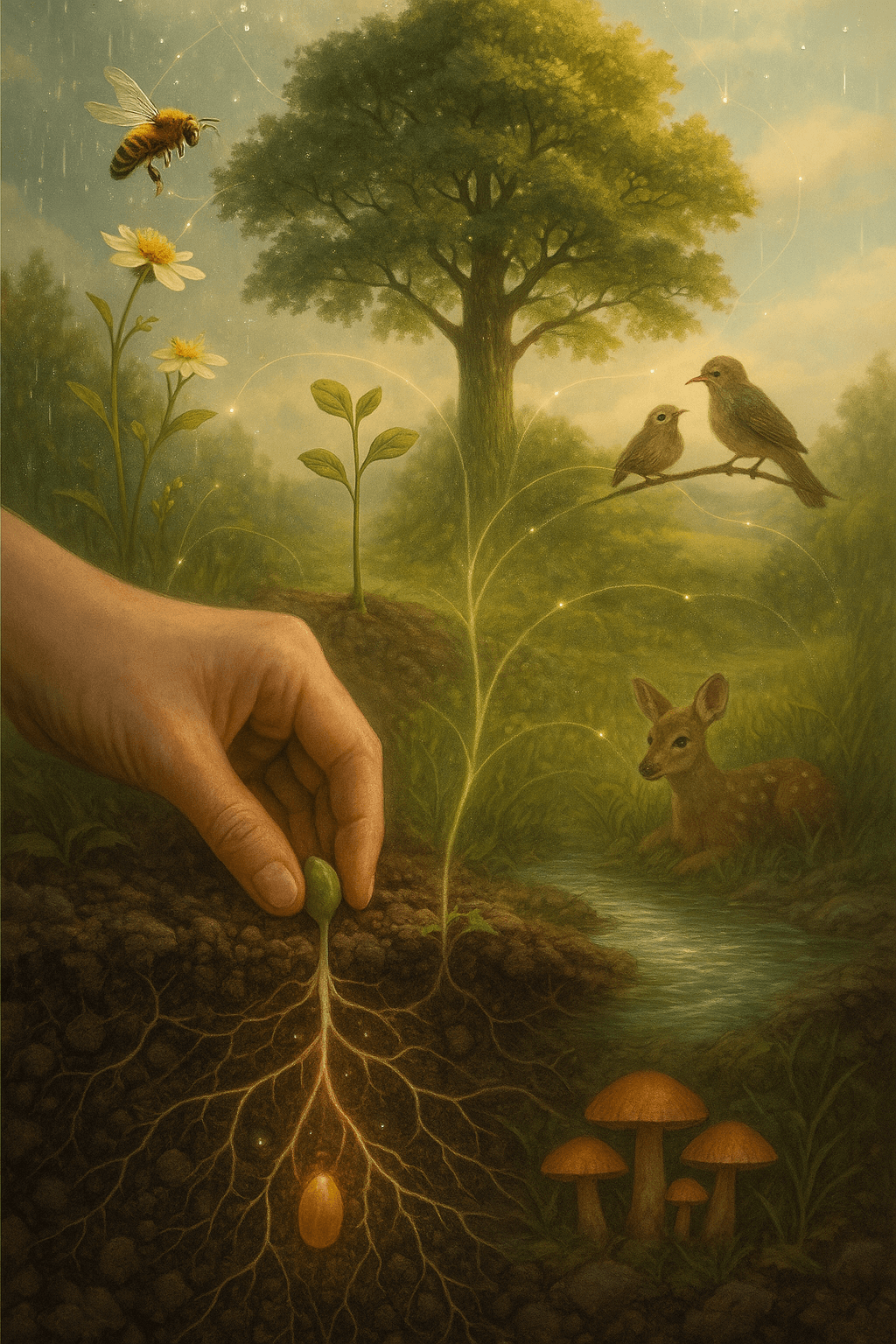Small Seeds, Vast Harvests of Human Kindness

Plant ordinary gestures that yield extraordinary kindness. — Pablo Neruda
—What lingers after this line?
One-minute reflection
What feeling does this quote bring up for you?
Ordinary Gestures as Living Seeds
At the outset, Neruda’s metaphor reminds us that small, repeatable acts—holding a door, learning a name, sending a brief note of thanks—are like seeds placed in everyday soil. They look insignificant at the moment of planting, yet their hidden roots take hold long before leaves appear. The promise of “extraordinary kindness” doesn’t arrive as spectacle but as growth: incremental, organic, and resilient. Like any garden, the work is humble and rhythmic; water and sunlight matter less as grand gestures and more as constancy. In this way, ordinariness is not the opposite of greatness—it is its nursery.
Neruda’s Odes to the Everyday
From this poetic lens, Neruda’s odes elevate the commonplace into revelation. In Odes to Common Things, he treasures onions, spoons, and socks—humble companions of daily life. “Ode to My Socks” turns a simple gift into a radiant emblem of gratitude, while “Ode to the Onion” honors a kitchen staple as a planet of sweetness. These poems model how attention, bestowed on the overlooked, transforms utility into intimacy. Thus the line about planting ordinary gestures is not an abstraction; it is a practice of seeing. By dignifying the small, we prepare the ground where generosity can thrive without fanfare.
Psychology: How Small Acts Rewire Identity
Turning from image to evidence, psychology shows why modest acts compound. Studies summarized by Sonja Lyubomirsky report that weekly acts of kindness reliably boost well-being, which in turn sustains more prosocial behavior. Likewise, Dunn, Aknin, and Norton (Science, 2008) found that spending on others increases happiness more than self-spending, creating a feedback loop of giving. Even the classic “foot-in-the-door” effect (Freedman & Fraser, 1966) reveals how small commitments reshape self-concept: once we act kindly, we are more likely to see ourselves—and behave—as givers. In other words, ordinary gestures quietly rewrite identity, and identity guides the next gesture.
Networks: Kindness that Cascades
Extending beyond individuals, social network research shows that generosity spreads. Fowler and Christakis’s work on cooperative cascades (PNAS, 2010) suggests the impact of a single kind act can ripple outward across friends of friends, sometimes up to three degrees. Similarly, Tsvetkova and Macy (PNAS, 2014) demonstrated the social contagion of generosity in large networks, where one person’s prosocial choice increases others’ likelihood to pass it on. Thus, a simple, ordinary offering—an introduction, a public thank-you, a first donation—can function like a seed carried by the wind. The harvest appears far from the planter’s sight, yet it is nourished by that first, quiet act.
Designing Daily Micro-Rituals of Care
To translate cascades into habit, we can plant on purpose. If-then plans (Gollwitzer, 1999) anchor kindness to cues: if a meeting starts, then greet each person by name; if you send an ask, then include a note of gratitude. Adam Grant’s Give and Take (2013) profiles Adam Rifkin’s “five-minute favor”—a tiny help (a quick intro, a concise review) delivered without expectation. Because micro-rituals are easy and repeatable, they survive busy seasons and prevent burnout; small does not mean shallow, it means sustainable. As these rituals accumulate, they tilt our default setting toward generosity, lowering the friction to act kindly again tomorrow.
From Seeds to Harvest: Trust as the Yield
Ultimately, what grows from ordinary gestures is social capital—the quiet trust that makes communities resilient. Robert Putnam’s Bowling Alone (2000) chronicles how everyday civic acts, from chatting on porches to helping a neighbor, weave networks that later carry heavier loads. In this light, the “extraordinary” in Neruda’s line is not spectacle but endurance: fewer brittle ties, more shared tools, faster mutual aid when crises come. And because seeds sprout in seasons, we measure progress not by applause but by ease—how naturally a community says yes to help, and how quickly kindness finds its next fertile patch of ground.